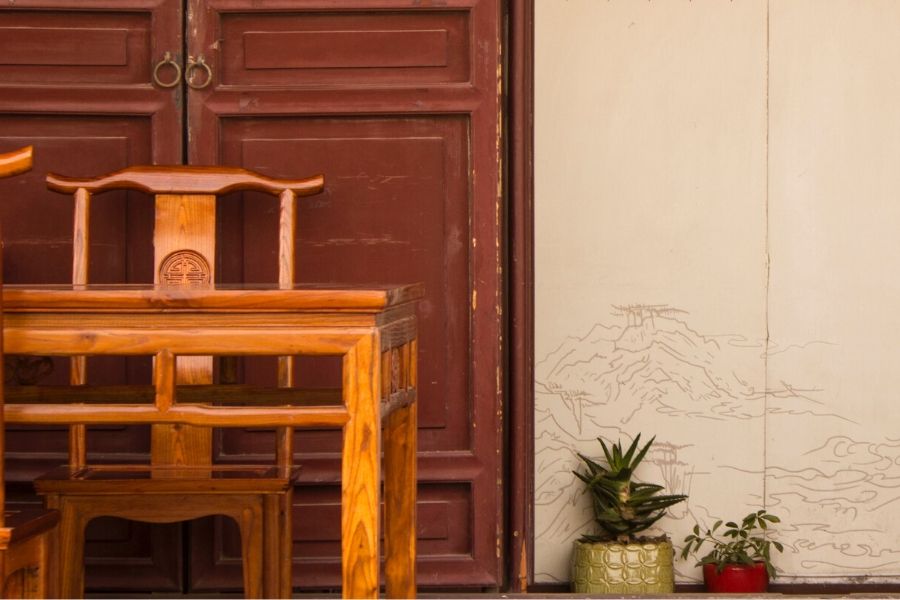
For a long time, since Chinese judges are not very good at ascertaining foreign law, they have been accustomed to refusing to apply them on the ground of failure to prove foreign law. The situation is presently being changed: China's Supreme People's Court (SPC) has been pushing all courts across the country to ascertain and apply foreign law as much as possible in the last three years.
The SPC hopes to make the parties from all over the world believe that Chinese courts will apply foreign law that should be applied, and have the ability to ascertain and accurately understand foreign law, thereby enabling the parties to litigate in Chinese courts willingly.
We have collected the SPC judges' statements on various occasions and local courts' responses.
1. In January 2015, the SPC's 4th CivilDivision and China University of Political Science and Law jointly establishedChina Institution for Discerning Foreign Law. During the inaugural ceremony, Judge He Rong (賀榮), the SPC's vice president, indicated that Chinese courts will improve the ability to ascertain foreign law and accurately apply foreign law, so as to equally protect the legitimate rights and interests of Chinese or foreign parties. [1]
2. In July 2015, the SPC held a press conference and issued the "Several Opinions of the Supreme People's Court on Providing Judicial Services and Safeguards for the Construction of the 'Belt and Road' by People's Courts"(關于人民法院為“一帶一路”建設提供司法服務和保障的若干意見). At the press conference, Judge Luo Dongchuan (羅東川), the then Director of the SPC's 4th Civil Division, stated that Chinese courts have the duty of ascertaining foreign law, but this was a weak part in the past. In the future, ascertaining and applying foreign law of countries alongside the "Belt and Road Initiative”(BRI), will be the focus of Chinese courts' efforts. Also, he expressed that Chinese courts need the support of relevant institutions in those countries. [2]
3. In September 2015, China Institution forDiscerning Foreign Law, the Base of Supreme People's Court of China for Discerning Hong Kong, Macao, Taiwan and Foreign Law, and the Base of SupremePeople's Court of China for Researching Hong Kong, Macao, Taiwan and Foreign Law were established in Shenzhen. At the inaugural ceremony, Judge He Rong said that correctly ascertaining foreign law would help improve the international credibility of China's judiciary and enable China to obtain a rule of law environment with international competitive advantages. Judge He Rong also asked all courts across the country to recognize the significance of ascertaining foreign law and to enhance their ability in this regard. [3]
4. In January 2016, Judge Zhang Yongjian (張勇健), Director of the SPC's 4th CivilDivision, was commissioned by Judge Zhou Qiang (周強)(the SPC's president), to participate in the “Doing Business AcrossAsia: Legal Convergence in an Asian Century” conference and the launch of the Asian Business Law Institute (ABLI). At the Conference, Judge Zhang said that Chinese courts are trying to ascertain and apply foreign law in foreign-related cases, so that Chinese courts are able to be consistent with international practices in the application of law. [4]
5. In December 2016, the SPC promulgated the "Opinions of the Supreme People's Court on Providing JudicialSafeguards for the Construction of Pilot Free Trade Zones”(關于為自由貿易試驗區建設提供司法保障的意見). Establishing the mechanism for ascertaining foreign law is one of its 12 opinions. [5]
6. In April 2017, the SPC convened a symposium for the directors of foreign-related commercial divisions in various courts across the country. At the symposium, Judge Liu Guixiang (劉貴祥)(permanent member of the SPC judicial committee) asked every court to improve the mechanism for ascertaining foreign law. [6]
7. In May 2017, the SPC published the Second Group of Guiding Cases Involving Construction of the "Belt and Road".Among them, the case of dispute over compensation of Dalian Municipal Ocean andFisheries Administration for marine pollution damage, was selected by the SPC as a guiding case because it involved the interpretation of "1992International Convention on Civil Liability for Oil Pollution Damage"(1992年國際油污損害民事責任公約), so as to show the progress of Chinese courts in ascertaining and applying foreign law and international conventions. [7]
8. In September 2017, Judge Liu Guixiang(permanent member of the SPC judicial committee) said at the Silk Road(Dunhuang) International Forum on Judicial Cooperation, that the SPC had successively established four bases for researching and discerning foreign laws as well as laws of Hong Kong, Macao and Taiwan, providing a convenient channel for ascertaining and accurately applying laws of the countries alongside theBRI in trial activities. [8]
9. In September 2017, Shanghai HighPeople's Court released the "White Paper on Foreign-related, Hong Kong, Macao andTaiwan-related Commercial Trials in Shanghai Courts (2012-2016)" (2012-2016上海法院涉外、涉港澳臺商事審判白皮書), in which it states: The court cooperated with East China University of Political Science and Law in Shanghai to ascertain foreign law.By then, foreign laws, including Hong Kong law and Swiss law, have been ascertained by this means in more than 10 cases. [9]
10. In February 2018, Tianjin MaritimeCourt commissioned China University of Political Science and Law (one of theSPC’s four bases mentioned above) to ascertain Mexican law, and experts from the university provided legal opinions and appeared in court for inquiry. The court hearing was also broadcast live on the Internet. This is the first time that a Chinese court commissioned experts of the SPC's base for foreign law ascertainment services. [10]
11. In March 2018, the SPC held a presidents' meeting of the supreme courts of China and Portuguese-speaking countries. The statement adopted at the meeting stated: The Supreme Court of each country will make the use of Internet technology and try to establish online platforms for ascertaining foreign law. [11]
12. In June 2018, the SPC established the First International Commercial Court in Shenzhen and the Second InternationalCommercial Court in Xi' an respectively. At the press conference, Judge Liu Guixiang stated that China International Commercial Court will set up the legal database of countries participating in the construction of "the Belt andRoad Initiative" and the institutions for discerning foreign laws, and also establish an Expert Committee composed of Chinese and foreign experts, who will assist the court in ascertaining and applying foreign law.
13. In July 2018, the court presidents from21 Chinese cities alongside "the Belt and Road Initiative" attended the first "Seminar on Judicial Cooperation in the Construction of the NewAsia-European Intercontinental Passage" and reached an agreement: Joint research on the ascertainment of foreign laws. [12]
14. In August 2018, "People's CourtDaily" (人民法院報), affiliated to the SPC, published an article about Shanghai SecondIntermediate People's Court commissioning East China University of Political Science and Law to ascertain the US laws and cases, and to translate and analyze those cases. The judge made a judgment based on the legal opinions issued by the experts from the university. [13] The SPC published the article in its newspaper with the hope that the courts across the country would follow the practice of Shanghai Second Intermediate People'sCourt.
Notes:
[1]https://www.chinacourt.org/article/detail/2015/01/id/1537510.shtml
[2] http://www.xinhuanet.com//legal/2015-07/07/c_1115844039.htm
[3]http://rmfyb.chinacourt.org/paper/html/2015-09/21/content_103045.htm?div=-1
[4]https://courtapp.chinacourt.org/zixun-xiangqing-16566.html
[5] http://www.court.gov.cn/zixun-xiangqing-34502.html
[6] http://www.court.gov.cn/zixun-xiangqing-40862.html
[7]https://courtapp.chinacourt.org/zixun-xiangqing-44712.html
[8]http://rmfyb.chinacourt.org/paper/html/2017-09/27/content_130669.htm?div=-1
[9]http://shfy.chinacourt.org/article/detail/2017/09/id/3001681.shtml
[10]http://tjhsfy.chinacourt.org/article/detail/2018/02/id/3196402.shtml
[11] https://www.chinacourt.org/article/detail/2018/03/id/3248879.shtml
[12]http://rmfyb.chinacourt.org/paper/html/2018-07/23/content_141546.htm?div=-1
[13]https://www.chinacourt.org/article/detail/2018/08/id/3445264.shtml
Contributors: Guodong Du 杜國棟









